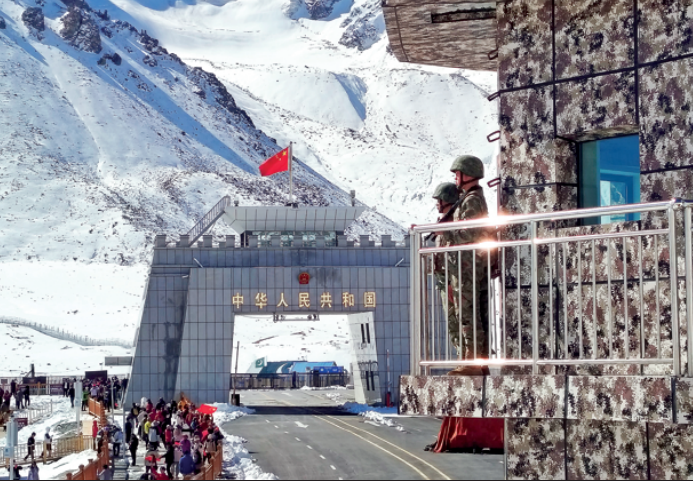Vital pass to boost China-Pakistan trade


A critical land port on the China-Pakistan border has commenced year-round operations, which will significantly boost bilateral trade and benefit the wider region, experts say.
Previously open for only eight months annually, the Khunjerab Pass is now operational throughout the year starting Dec 1, a move expected to bolster economic ties between the two countries and advance the China-Pakistan Economic Corridor, or CPEC, to a new phase, they added.
Zulkafil Hassan Khan, president of the Society of International Relations & Law in Islamabad and director of the Pak-China Corridor of Knowledge, said a giant step has been taken in respect to the Khunjerab Pass.
"It is indeed a milestone in the land connectivity between two ironclad brothers, facilitating bilateral trade, commerce and, of course, uplifting local communities," he said.
Situated at about 5 kilometers above sea level, the Khunjerab Pass serves as a strategic gateway along the Karakoram Highway, connecting China's Xinjiang Uygur autonomous region with Pakistan's Gilgit-Baltistan region.
Experts said the mountain pass has ensured smoother and more efficient transportation of goods such as machinery and textiles in the region.
"Now, it is hoped that the year-round opening of the border would improve the region's economy, encourage people-to-people contacts and accelerate regional connectivity in the days to come," Khan said.
Moiz Farooq, executive editor of Pakistan Economic Net and Daily Ittehad Media Group, hailed the year-round operation of the Khunjerab Pass as a landmark decision highlighting the enduring strength of China-Pakistan ties.
"This significant development (will) enhance connectivity, trade and people-to-people exchanges between the two nations," he said. "As a critical gateway linking China and Pakistan with South Asia and beyond, the Khunjerab Pass will play an even greater role in advancing the goals of the CPEC."
According to Khunjerab Customs, since the resumption of passenger customs clearance on April 1, the border port has handled more than 50,000 passengers, 11,000 vehicles and 40,900 metric tons of cargo by the end of October, demonstrating the immense potential of this vital trade route. With trade volume up 72.7 percent year-on-year, the transition to year-round operations is set to further boost economic activity, facilitate cultural exchanges and strengthen regional integration.
Symbol of friendship
The Khunjerab Pass is more than a land port — it is a symbol of friendship and cooperation, Farooq said. The continuous operation reflects the commitment of both nations to mutual prosperity and enhanced connectivity, paving the way for greater regional stability and development, he added.
"This decision is a testament to the shared vision of China and Pakistan to overcome challenges such as high altitude and harsh weather conditions, ensuring uninterrupted collaboration," he said. "It underscores the importance of sustainable infrastructure in fostering economic resilience and growth."
Imran Khalid, an international affairs commentator in Pakistan, said the decision to keep the pass open year-round is a game changer for trade and tourism in the region.
Year-round operations will enhance Pakistan's role as a regional trade hub, linking Central Asia, South Asia and Europe through improved connectivity, and will also promote cultural exchanges and tourism while stabilizing supply chains for both China and Pakistan, he said.
"Overall, this strategic move strengthens economic ties, supports CPEC objectives and integrates the region into a broader transcontinental trade network."
Bai Zhijun, director and producer of the documentary From Xi'an to Gwadar Port, which was launched in October on Pakistani state TV to celebrate the enduring China-Pakistan friendship, said that as strategic points of CPEC projects, the Khunjerab Pass and the Karakoram Highway serve as important channels for trade, communication and exchanges among neighboring countries, particularly Central Asia, which can benefit from the open ports and accesses.
Xinhua contributed to this story.

































